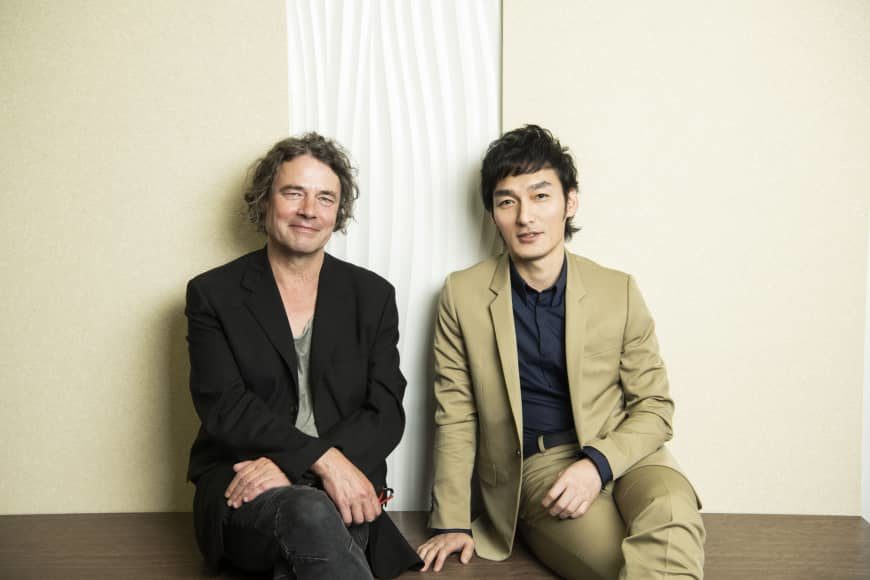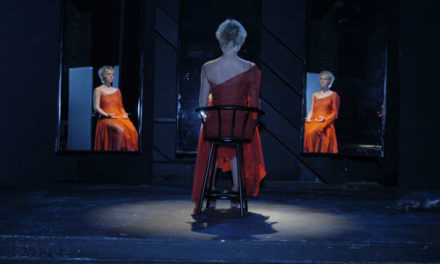It has been almost two years since pop group SMAP split up, but its demise after over two decades at the forefront of entertainment in Japan is still fresh in everyone’s memory.
For theater lovers, though, what’s great is that three of SMAP’s five former members have since been busy on stage, with Goro Inagaki now playing the deaf composer Beethoven in a reprise of Kazuki Nakashima’s 2015 play No. 9: Fumetsu No Senritsu and Shingo Katori set to star in Nihon No Rekishi, a new musical by top playwright Koki Mitani.
As for the third member who has risen to the challenge of live theater, Tsuyoshi Kusanagi is now in rehearsals for the upcoming Tokyo world-premiere dramatization of Italian maestro Federico Fellini’s 1954 film masterpiece, La Strada (The Road).
Though this may be a mighty leap for Kusanagi, the all-around entertainer is surely in good hands with the English dramatist David Leveaux at the helm, a director who has worked with Japanese actors since the early 1990s and whose musical Nine, based on Fellini’s film 8½, picked up two Tony Awards in 2003.
A kind of Beauty And The Beast fairy tale, La Strada is a bleak sort of road movie built around Zampano (Kusanagi), a strongman in a down-at-heel traveling circus, and his simple but pure-hearted wife Gelsomina (Aju Makita) whom he bought from her impoverished mother. Yet, though Zampano treats her roughly, Gelsomina is devoted to him as his assistant and partner.
Then, one day, they encounter Il Matto “The Fool” (Naoto Kaiho), an old acquaintance of Zampano’s who is a tightrope walker and clown, and they start to perform together. Before long, Il Matto is opening up a new world to Gelsomina, telling her that anyone, no matter how lowly, has their own special value in this life. Soon, though, a quarrel between Zampano and Il Matto leads to a fatal accident.
“I didn’t know about Fellini’s movie before,” Kusanagi says. “While I was ashamed of my ignorance, I thought I was lucky because after I watched it, an entirely new, unknown world opened up and I was thrilled to think how much I would enjoy this role.
“I am especially excited about playing a wild, masculine man like Zampano, and it was a great discovery for me to see Anthony Quinn play him in the movie. Other great actors such as Marlon Brando and James Dean were already my heroes in similar roles, but then I found another one.”
To rise to this challenge, Kusanagi—always a notably slender member of SMAP—says he is now bulking up to play Zampano, whose star turn is expanding his chest to break a thick metal chain wrapped around him.
“There is no choice, I just need to do it,” the actor says with an outburst of laughter. “However, the director told us this won’t just be a stage replica of the movie, because we are going to create our own original La Strada. So he asked me to create my own Zampano.
“The way I see it is that Zampano basically can’t function in the world because at his core he lacks self-confidence. That’s why he has a complex regarding Il Matto, who is witty and talkative and is also a fantastic tightrope walker.
“So I don’t think being macho is the only way to be Zampano. He looks like a monster, but he also has a naive, childish side to him, and I think it will be interesting if I can show that big gap with my acting.”
As he’s been developing the character, Kusanagi says that, for a while, he was leaning toward the gentleness of Il Matto. But now, he empathizes more with Zampano.
“I feel closer to him as I am not a great talker and I sometimes wish I was smarter and more sociable,” he says. “I am also quite clumsy and I don’t like complicated things—just like Zampano. Perhaps many people in the audience would normally make fun of such an incompetent guy, but I hope they’ll gradually come around to being fond of such a really human person.”
Those aspirations apart, how does Kusanagi intend to portray the hero of a 60-year-old movie?
“It’s the real me who is playing Zampano, therefore my own personality and my life experiences will be reflected in that character—and I believe that’s the same in any theater work,” Kusanagi says, “so I act the role using my instincts and try not to analyze too much or draw on written information.
“Actually, it probably sounds a bit irresponsible, but even I don’t know how my Zampano will behave in the end. He may cry bitterly, or he may not weep at all.
“Theater is a once-in-a-lifetime experience for the audiences and also for the actors. Every time it’s a fresh documentary. However, I’m quietly confident about the outcome—and that I will finally be able to understand Zampano’s heart and his emotions.”
Then, stepping back a little, Kusanagi explains how he looks at his life as “a succession of phases” in which he wouldn’t have been able to do this role 10 years ago, and probably can’t do it 10 years from now. So he believes this is just the right time to play Zampano.
“I am now 44 and I have enough experience of ups and downs in my life to be able to devote all my energy to being Zampano for 20 days from Dec. 8, and I want as many people as possible to witness my 44-year-old Zampano on stage,” he says.
Then, echoing his director Leveaux’s aim to create a curious world in a theater fashioned like a circus tent full of music, dance and other distractions, Kusanagi says, “We are trying to present universal human issues such as compassion, separation, life and death, restoration and departure, and such elements come and go on that circus stage.
“Nobody knows how long they will live and it’s nonsense to judge whether anyone’s life was a success or a failure at a certain point. For example, my La Strada continues from now on. So, I will choose my way by myself as I have done so far.”
This article originally appeared in The Japan Times on December 4, 2018, and has been reposted with permission.
This post was written by the author in their personal capacity.The opinions expressed in this article are the author’s own and do not reflect the view of The Theatre Times, their staff or collaborators.
This post was written by Nobuko Tanaka.
The views expressed here belong to the author and do not necessarily reflect our views and opinions.


















